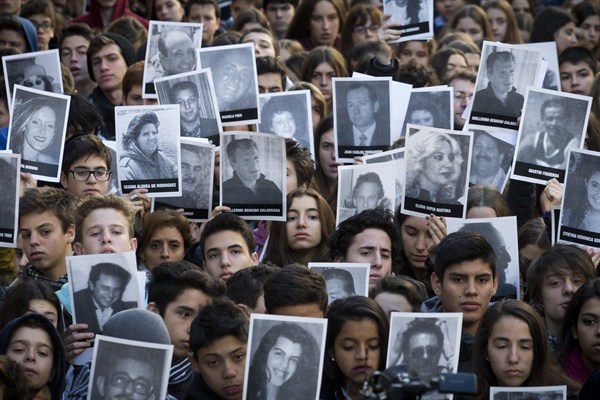A new high-profile trial started last week in Buenos Aires, opening another act in the cloak-and-dagger drama surrounding a decades-old terrorist attack in the Argentine capital. Once again, charges and countercharges about Middle Eastern powers, shady characters and secret payments to local players are bound to come to light. Once again, the principal perpetrators will escape punishment in a case that has continued to claim victims as recently as this year, when the case’s special prosecutor, still leading an ongoing parallel investigation, was found dead in his apartment.
When this court proceeding ends, the one thing that is certain is that the killers will not be punished—they are not even on trial. Instead, Argentines will have a better understanding of why justice for the attack remains beyond reach, a topic sure to make those in power extremely nervous, especially in the midst of a presidential election campaign.
The trial involves the 1994 bombing in Buenos Aires of the Jewish community center known as AMIA that killed 85 people and injured hundreds. In the more than 20 years since what remains one of the world’s deadliest terrorist attacks, authorities have failed to bring anyone to justice, even though prosecutors are convinced they know who was responsible—Iran and Hezbollah—and even though they possess enough evidence to have secured Interpol arrest warrants for some of the key figures in their theory of the case.

